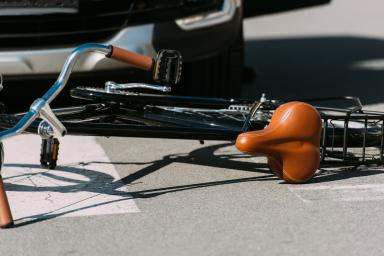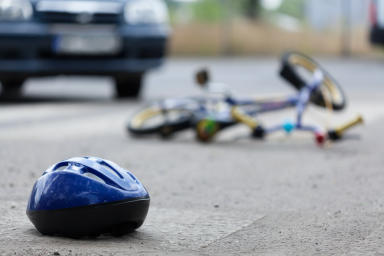South Carolina Bicycle Laws

South Carolina has many locations for bicyclists looking for scenic rides. These include the Francis Marion National Forest, located north of Charleston, and Sullivan’s Island.
Large cities in the Palmetto State also offer bicycle trails for cyclists traveling for work or pleasure. The state capital, Columbia, for instance, has 20 miles of bike routes. Meanwhile, the largest city — Charleston — is home to a large portion of the 32-mile Battery2Beach bicycle network. The route runs from Folly Beach to the Isle of Palms.
However, despite these existing bike facilities and plans to improve safety among bicyclists, South Carolina ranks 43rd in the list of bicycle-friendly states, according to the League of American Bicyclists. The organization gives an F to its infrastructure funding. It also notes that there is no law in the state regarding the smallest passing distance between motorists and cyclists.
Another thing that riders must consider is that South Carolina is the fifth deadliest state for bicyclists, as stated in a 10-year federal study.
Consequently, understanding your legal rights is important if you are injured in a bicycle accident. This article dives into various areas of state law, including the existing caps on certain damages and the statute of limitations. It also contains links to legal resources that can help you obtain compensation for your accident-related losses.
Sharing Roads and Sidewalks in South Carolina
Under state law, cyclists have the same responsibilities and rights as motorists. The South Carolina Department of Public Safety and the Palmetto Cycling Coalition advise riders to travel using the right lane. In line with this, cyclists are allowed to utilize lanes other than the right-hand side of roads when only one lane is accessible. State organizations also require bicycle users to ride in the same direction as traffic.
Riders in the state need to use hand signals when riding and turning. According to South Carolina law, extending the right arm horizontally to the right signals a right turn. The same gesture, stretching the left arm horizontally to the left, indicates a left turn. Those seeking to signal that they are stopping can extend either arm downward. Nevertheless, cyclists do not need to continuously signal other motorists if their arms or hands are preoccupied with the bicycle. People caught violating these regulations may face a $25 fine.
Another law is that more than two bicyclists cannot ride side-by-side in a lane. The practice of traveling more than two abreast is only applicable in lanes reserved exclusively for riders.
It is also important to note the regulations involving sidewalk use. Cities vary in the way they permit or restrict cyclists from using sidewalks. For example, Charleston allows riders on sidewalks designated as shared-use paths. The city also permits children under 12 using 24-inch diameter wheels to ride on sidewalks. Meanwhile, Columbia prohibits cyclists from using sidewalks in certain areas, including Sumter Street and Elmwood Avenue.
Knowing how to share the road safely with other motorists is crucial to preventing bicycle accidents. It is essential to have a good understanding of state and municipal regulations, especially when traveling during heavy traffic. In 2021, over 27% of all non-fatal bicycle crashes occurred during the rush hour period between 3 p.m. and 6 p.m.
South Carolina Equipment Requirements for Bikes and Cyclists
South Carolina requires cyclists to use various equipment at night. These include headlamps that emit a white light visible from a minimum of 500 feet. Another essential component is a red rear reflector, which should be seen by motorists from at least a distance of 50 to 300 feet. Riders may also install a red light lamp on their bicycle’s rear that is visible from 500 feet.
In addition, South Carolina requires cyclists to ride brake-equipped bikes. These brakes must enable riders to skid their wheels on clean, dry, and level pavement. The state imposes a $25 fine for cyclists using bikes without brakes.
Some municipalities in the state maintain slightly different bicycle equipment requirements. For instance, Rock Hill allows flashing red lights to be installed on a bicycle’s rear in addition to a red reflector. Another municipality, Mount Pleasant, does not permit cyclists to travel without the proper lighting equipment 30 minutes after sunset up to 30 minutes before sunrise.
Riding bicycles with the appropriate components is vital to helping cyclists improve their visibility to motorists, especially at nighttime. Although the majority of bicycle accidents happen during daylight hours, more than half of all fatalities occur between 6 p.m. and 6 a.m.
E-bike Laws in South Carolina
Unlike its neighbor Georgia, South Carolina does not have laws that classify electric bicycles into distinct classes. However, it does define e-bikes as those equipped with an electric motor with a power output not exceeding one horsepower or 750 watts.
The difference between an e-bike and a moped, according to state law, is the motor power; a moped’s exceeds 750 watts but is less than 1500 watts.
There are other things that e-bike users should know. Distributors or manufacturers of these vehicles must apply a permanent label indicating their maximum speed and wattage. Cyclists that modify their vehicle’s speed capability should replace the original label.
The South Carolina State Parks Department has no existing policy regarding the use of electric mountain bikes on the protected lands it oversees. E-bike users are also permitted on trails managed by the U.S. Forest Service.
South Carolina Abandoned Bicycle Laws
Since South Carolina classifies bicycles as vehicles, they may be bound by the state’s abandoned vehicle laws. This means businesses that claim discarded bicycles — which include repair shops, towing companies, and storage facilities — may sell them at a private auction.
According to the Charleston municipal code, there are two definitions of abandoned bicycles. These are either bikes that have not been moved for more than a week or those that are inoperable. The city can donate, auction off, or discard such vehicles.
Some municipalities, meanwhile, encountered issues involving abandoned bicycles. The town of Atlantic Beach had a problem with several bikes strewn along its beach. Before they were supposed to be destroyed, All Nations Café was able to repurpose them for international students.
Bicycle Registration Laws in South Carolina
The state mandates municipalities to regulate bicycle use in their areas and require riders to register their bikes. In line with this, certain cities have ordinances that require cyclists to register their bicycles with the police department.
For instance, Charleston makes it mandatory for riders to provide the model and make of their bikes to the police department. The city’s issued decal license tag, which is valid for three years, must be attached to a registered bicycle. Rock Hill and Greer have similar requirements.
The primary benefits of registering bicycles include discouraging theft and recovering stolen bikes. Under South Carolina law, bicycle theft is treated as a misdemeanor. Cases involving bikes worth less than $2,000 can be put on trial before the municipal or magistrate courts. Those found guilty of theft have to either face a 30-day prison sentence or up to $1,000 in fines. The penalties increase in cases where an individual knowingly buys a stolen bicycle.
Is South Carolina a No-Fault State for Bike Accidents?
No. South Carolina is an at-fault state and permits cyclists to recover accident-related damages directly from liable parties. Additionally, there are situations where injured bike riders may obtain compensation from their own insurance company.
If hurt by an uninsured driver in an accident, a cyclist with uninsured motorist coverage can use his insurance to recover medical costs. The same coverage can also be used in case of a hit-and-run situation.
It should be noted that in South Carolina, almost 11% of motorists are uninsured.
How Much Can Someone Sue for a Bicycle Accident in South Carolina?
Under South Carolina law, no caps exist for economic and non-economic damages. Bicycle accident victims, therefore, will find no limit on the amount of compensation they can obtain for their medical expenses and emotional distress from liable parties.
However, the state does restrict the punitive damages one can get. For more than a decade, the cap on punitive damages has been increasing yearly depending on inflation. As of February 2023, the limit is set at $677,065.
What is South Carolina’s Statute of Limitations for Bicycle Accidents?
Bicycle crash victims in South Carolina have three years from the date of their accident to file a lawsuit against the at-fault parties. The three-year window also applies in cases where a cyclist passes away because of an accident. Surviving family members may bring a claim against the defendants from the day the victim died.
Meanwhile, some cases have different statutes of limitations. For example, the South Carolina Tort Claims Act provides two years for plaintiffs to file claims against the government. However, the three-year window will apply if a plaintiff’s claim for damages is rejected.
Another exception to the rule is cases involving minors. Once they turn 18, they have one year to press legal action against the responsible parties.
Legal Resources for South Carolina Bicycle Accident Victims
South Carolina Department of Transportation
The agency repairs bridges and roads, as well as oversees pavement improvement programs, as part of its duties. It also maintains the “Complete Streets” policy, which aims to provide alternative modes of transportation for bicyclists and pedestrians. Through its partners, it created the Pedestrian and Bicycle Safety Action Plan in 2022 to educate cyclists on the factors contributing to crashes. Bike riders injured because of road defects may submit a claim to the department online.
South Carolina Department of Motor Vehicles
The agency provides property records and licenses to motorists throughout the state. It also runs a website that allows individuals to download helpful documents, like driver’s manuals and application forms for those with hearing impairments. Additionally, it allows people to request their collision reports online. Bicyclists can also request a copy of their report by mail or in person.
South Carolina Bar
The organization, which has more than 17,000 members, has been working with legal practitioners across the state since 1884. It runs the Lawyer Referral Service to help clients like cyclists resolve their personal injury cases. Individuals seeking assistance from prescreened attorneys can call 1-800-868-2284 between 9 a.m. and 5 p.m. Residents of Lexington and Richland counties may call 799-7100 instead. One may also go online to find an attorney for their legal needs.
Expertise.com StaffAuthor
Step into the world of Expertise.com, your go-to hub for credible insights. We don't take accuracy lightly around here. Our squad of expert reviewers, each a maestro in their field, has given the green light to every single article you'll find. From rigorous fact-checking to meticulous evaluations of service providers, we've got it all covered. So feel free to dive in and explore. The information you'll uncover has been stamped with the seal of approval by our top-notch experts.




